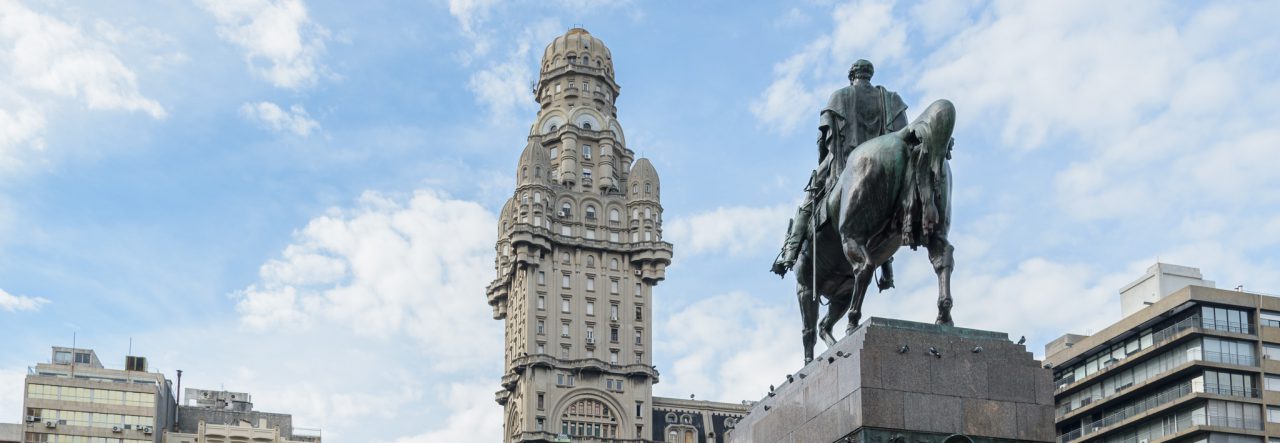
During the first eight months of 2013, Uruguay’s exports to Argentina fell 5.6%, exports to Venezuela fell 15.1% and exports to Paraguay fell 9.2% compared to the first eight months of 2012. Although Uruguay’s exports to Brazil continued to grow, they rose only .1%.
Put together, Uruguay’s exports to Mercosur from January to August 2013 fell 3.9% compared to 2012 and totaled $1.748 billion USD. Exports to non-Mercosur countries rose 4.8% and totaled $6.478 billion USD.
The executive secretary of Uruguay’s Exporter’s Union, Teresa Aishemberg, told the Uruguayan newspaper El País that the organization does not expect positive changes in Argentina, Brazil or Venezuela this year. However, they did see an increase in exports to Paraguay during August.
Aishemberg said that the situation with Argentina cannot improve as long as President Cristina Fernández Kirchner’s government maintains the trade barriers it has imposed. “Evidently we have to look to other markets, but not all products are competitive outside the region” Aishemberg said.
The economist Pablo Moya from the consulting firm Oikos agreed with Aishemberg about the situation in Argentina. “There is a real loss of the competitiveness that Uruguay always had in comparison with Argentina beyond the increased costs”, he said.
Moya does not expect any changes in Argentina’s trade policies under the current president. He was more optimistic about the situation with Brazil. “With them there is a greater possibility that they will reverse and again be a market demanding Uruguayan products, a strong destination for our sales”, he said.
Nevertheless, Moya does not expect significant changes in regional trade soon. “Significant change with Argentina and with Brazil would be slow, the outlook is not reversible in the short-term”, Moya said. Given this situation Moya also expressed the need for Uruguayan exporters to look toward other markets but didn’t negate the difficulty of doing that. “Many [exporters] that want to trade outside the region aren’t able to. They lose competitiveness.” he said.
“For a long time exporters have been looking toward the rest of the world, principally because of the tariff barriers and the bureaucratic obstacles that they are applying, while in theory the free circulation of goods and service within Mercosur generates advantages”, added Moya.
With a prediction that conditions will not improve in the short-term, exporters are demanding the government apply a series of measures to confront Uruguay’s loss of competitiveness.
Declining competitiveness, customs procedures, and soybeans to the “rescue”
Teresa Aishemberg emphasized to El Pais that the Exporter’s Union called on the government to take several measures to improve Uruguay’s competitiveness. These measures include a reduction in employer contributions and or improvements in export pre-financing.
“What’s more there are hidden costs. There are delays in the procedures and logistics aspects generate financial costs to businesses when these procedures slow down”, said Aishemberg.
The export sector also called for cheaper energy and said that Uruguay’s energy costs are not very competitive compared to the region.
Uruguay’s five principal business chambers (the chambers of Industry, Trade, Commercial and the Rural Federation and Rural Association) released a report a few weeks ago on Uruguay’s declining competitiveness.
The report spared no criticism of the government and annoyed the executive branch. Although Uruguay’s Exporter’s Union has called for measures to address the country’s declining competitiveness, it has distanced itself from the report and emphasized that the Union was not involved with the report.
Up to now, what is “rescuing” Uruguay’s export numbers is soybeans. Soy bean exports grew 32.9% in the first 8 months of 2013 compared to 2012 and totaled $1.814 billon USD. Out of every $100 USD Uruguay has exported in 2013, $28 USD has been soybeans.
This Uruguayan Business Reports news article is a translation of a news article that appeared in the Uruguayan newspaper El País. The original article is available in Spanish here. Uruguay Business Reports translation by Donovan Carberry.








